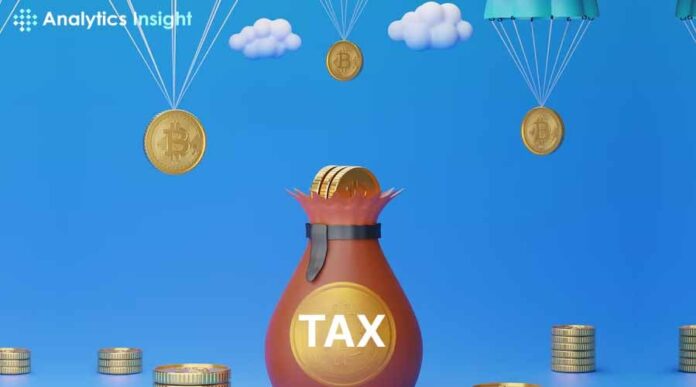**Cryptocurrency Tax Laws:** As cryptocurrency becomes popular worldwide, it presents new investment opportunities and tax challenges. Events like airdrops and forks have specific tax consequences that investors need to understand to ensure compliance and avoid legal issues. This article discusses the taxation of airdrops and forks, along with strategies for investors.
Airdrops and Their Tax Implications
An airdrop is when a cryptocurrency project gives away tokens for free to wallet holders, often as a promotion. While it may seem like “free money,” many tax authorities treat these as taxable income.
Tax Treatment of Airdrops
Tax authorities usually consider airdrops taxable when the recipient gains control over the tokens. The taxable amount is the fair market value at that time. For example, if someone receives tokens worth $500, they must report this as income in the tax year received.
Tax treatment can vary: it might be taxed as regular income or capital gains based on local laws, with penalties for failing to report.
Sale of Airdropped Tokens
Selling these tokens creates another taxable event based on the difference between the sale price and the initial fair market value. If you sell airdropped tokens valued at $500 for $800, the $300 profit is taxable. Holding tokens longer may lead to lower capital gains tax rates.
Forks and Their Taxation
A fork splits a blockchain, leading to new cryptocurrencies. Hard forks create new coins, while soft forks do not. Tax implications vary based on the type of fork.
Tax Treatment of Hard Forks
In a hard fork, the creation of new tokens is taxable when received. For instance, if a Bitcoin holder receives Bitcoin Cash worth $1,000, itís taxable income. If the tokens are unusable initially, the tax event arises when they become available.
Sale of Forked Tokens
Like airdrops, selling tokens from hard forks creates taxable events based on price differences. If you sell Bitcoin Cash worth $1,000 for $1,500, the $500 gain is subject to capital gains tax.
Soft Forks and Tax Implications
Soft forks donít create new cryptocurrencies, so they generally donít trigger tax events. However, laws can change, so itís wise to stay informed.
Reporting Requirements for Tax
Airdrops and forks must be reported as income. Failing to do so can lead to penalties. Investors should track every transaction, including dates and fair market values, for accurate tax calculation.
Tax Liability Minimization Strategies
Here are ways to reduce taxes from airdrops and forks:
Tax-Loss Harvesting:
Liquidating underperforming tokens can offset gains from other transactions to lower tax liability.
Holding Tokens for the Long Term:
Holding tokens over a year may qualify for lower long-term capital gains rates, avoiding higher short-term rates.
Engage a Tax Professional:
Consulting a tax expert ensures compliance with local laws and identifies optimization opportunities.
Overall, know the tax treatment for airdrops and forks to avoid penalties, and use strategies like tax-loss harvesting and long-term holding to reduce tax liability.
`

